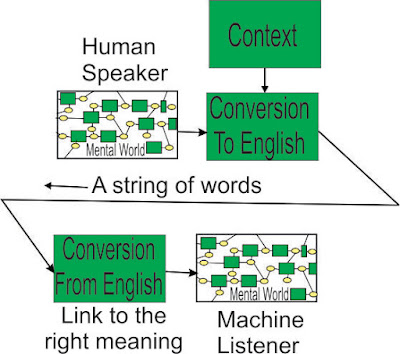Limitations of a Dictionary Approach
In general, an approach to knowledge using dictionary
definitions would be too narrow, too circular, too incestuous. The definitions
are too short to convey useful information, particularly in technical areas.
Let’s take an example – “erroneous”.
Erroneous is defined as wrong; incorrect.
Here are the definitions for wrong; incorrect.
Wrong:
Definition: not correct or true
Definition: unsuitable or undesirable
Definition: mistaken
Definition: in a bad or abnormal condition; amiss
Definition: unjust, dishonest, or immoral
Incorrect:
Definition: not in accordance with
fact; wrong
Definition: not in accordance with
particular standards or rules
Many of the definitions do not apply:
“There is something wrong with
the car” does not mean “the car is erroneous”.
The car may have been assembled erroneously, but that leads
to a faulty car, not an erroneous one.
So what do we do? Use the definitions that fit, ignore the
others.
Or we define what can be erroneous – a process or chain of
reasoning, which contains an error.
(of a message, process or chain of
reasoning) containing an error
We will assume a definition constructed of multiple words is
more likely to be robust.


Comments
Post a Comment